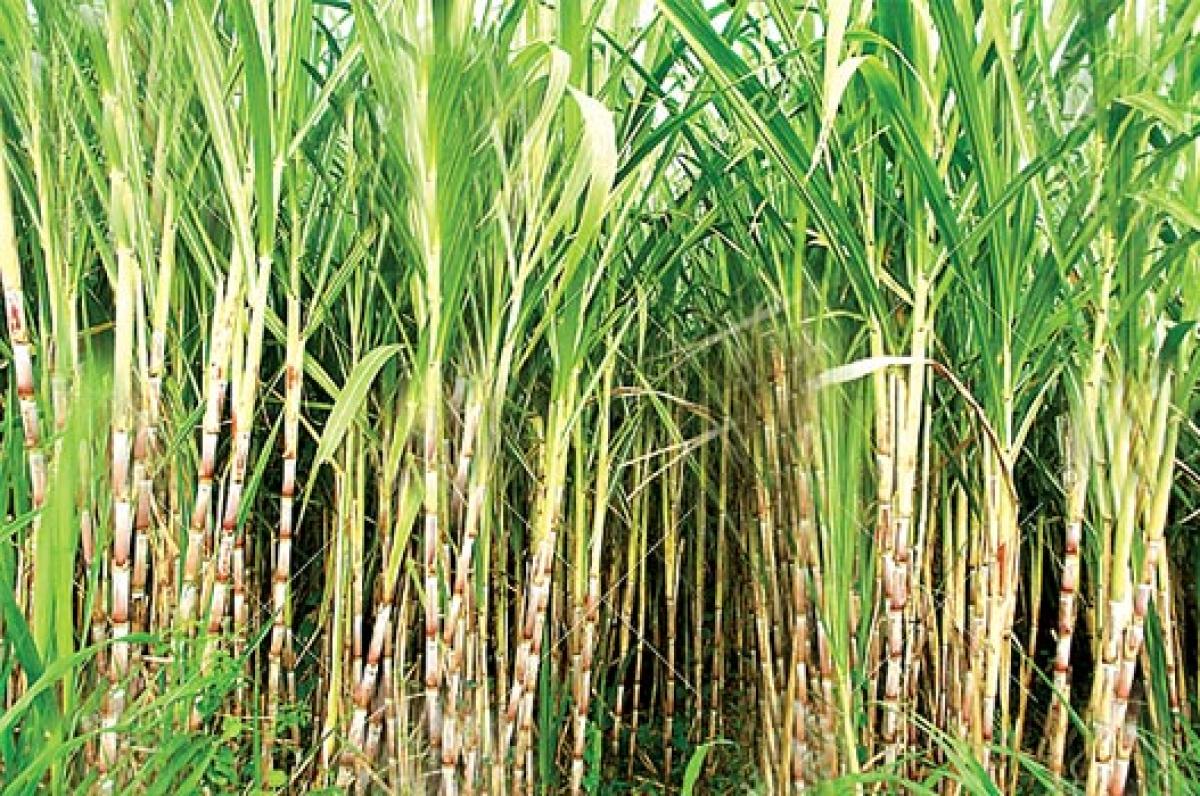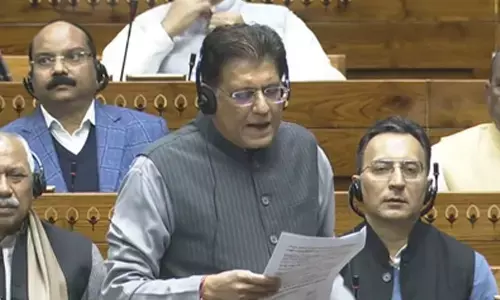Sugarcane cultivation turns bitter

The situation has come to such a pass that the country which was exporting sugar now has to purchase it from foreign countries!. This is because sugar production during the last five years was down by one crore tonnes. This explains the grave crisis the industry is facing.
Hyderabad: Sugarcane cultivation is proving to be an unpleasant experience for farmers, as there is no remunerative price and encouragement from both the government and also the sugar factories is lacking. As a result, the crop area during the last one year has fallen.
The situation has come to such a pass that the country which was exporting sugar now has to purchase it from foreign countries!. This is because sugar production during the last five years was down by one crore tonnes. This explains the grave crisis the industry is facing.
From 3.5 crore tonnes last year it fell to three crore tonnes in 2016. The government is to be blamed for the crisis as, instead of encouraging sugarcane cultivation to meet the country’s needs, it is importing sugar. With sugarcane output falling steeply 150 of the 540 sugar factories closed shop.
The extraction of alcohol from sugarcane is now being limited through curbs to only five per cent, as against 25 per cent in Brazil, world’s no.1 sugarcane producer. The country is no.2.
The revenue secured from alcohol production is being utilised for paying pension to farmers, sugarcane subsidy and loan/tax waiver. The other required alcohol is being imported, thus proving to be a disincentive for sugarcane production.
The government has virtually opened the door for sugar import, severely impacting the interests of farmers. In this scenario sugarcane factories are giving more importance to import of raw sugar raw rather than crushing. They are refining it before marketing, without bothering to purchasing sugarcane from farmers.
Even if purchased the factories decide the price, which the ryots are forced to accept (Rs.2,650 for a tone, whereas Rs.4,000 is remunerative). Farmers are also severely affected by non-receipt of seed subsidy, bank loans and denial of cutting/transport charges. Keeping this in view, farmers’ rganisations want the government to frame the import policy to suit farmers’ interests, rather than that of factories.
Point out Sarampalli Malla Reddy, Rythu Sangham leader and Viju Kishan, vice-president, All-India Kisan Sangh, that the sugar factories don’t pay the farmers on time, of 15 day, for the purchased sugarcane.
They told The Hans India that last year’s dues from factories to ryots total Rs.16,000 crore, despite the Centre providing funds for the payment of interest-free payments.
The factories appear to have made it a practice not to pay dues to farmers, who want the government to provide encouragement by re-opening the closed factories and paying Rs.4,000 a tonne as the minimum support price. They favour the factories to bear the cutting and transportation charges and urge the government to offer interest-free loans. If these steps are not forthcoming, they warn, sugarcane cultivation has to be given up.
In Telangana the sugarcane farmer faces many hardships, as he has to bear the labour cost of transporting the stock to the factories (which have to meet them in the normal courese).
The government has to pay Rs.60 a tonne as transport charge and recover the amount from the factories. Since the government has not issued orders farmers have to incur heavy loss, point out farmers from Khammam.
Besides, they are also hit by non-receipt from factories of permits after transporting sugarcane. With the purchase dragging for days, the stock gets dried up and lose weight of at least two tonnes for each tractor trip. Another factor causing losses to farmers is that as against expenditure of Rs.80,000 for producing sugarcane in an acre, they get in return Rs.66,000, at the current rate of Rs.2,650 per tonne, Satyanarayana Reddy of Khammam told THI.
In the case of Medak farmers the problem is exclusion from loan waiver. They want the government to incorporate sugarcane in the scheme. They grumble that the bills are not being paid by factories on time (of 15 days).
They are not being paid even for four months, that too in installments, without adding interest. Farmers also lose on account of the companies collecting interest right from day one on the sold seed and fertilizers, say farmers Sardar and Srisailam.
Ryots in Karimnagar are suffering a heavy loss following the closure of sugar factories like one in Motpalli, last year, because of which they are forced to shift their stocks to a neighbouring district.
They are forced to pay additional amounts for transport and toll. They also face opposition for sale from local farmers. Keeping this in view, farmers Mamidi Narayan Reddy and Kandi Buchi Reddy want the Nizam’s Sugar Factory to be re-opened.














